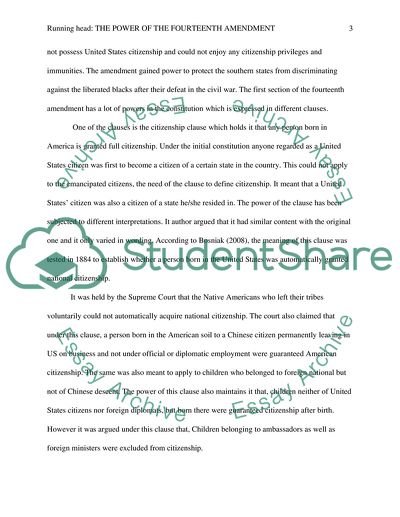Cite this document
(The Power of the 14th Amendment of the US Constitution Research Paper - 1, n.d.)
The Power of the 14th Amendment of the US Constitution Research Paper - 1. Retrieved from https://studentshare.org/law/1751430-the-power-of-the-fourteenth-amendment
The Power of the 14th Amendment of the US Constitution Research Paper - 1. Retrieved from https://studentshare.org/law/1751430-the-power-of-the-fourteenth-amendment
(The Power of the 14th Amendment of the US Constitution Research Paper - 1)
The Power of the 14th Amendment of the US Constitution Research Paper - 1. https://studentshare.org/law/1751430-the-power-of-the-fourteenth-amendment.
The Power of the 14th Amendment of the US Constitution Research Paper - 1. https://studentshare.org/law/1751430-the-power-of-the-fourteenth-amendment.
“The Power of the 14th Amendment of the US Constitution Research Paper - 1”, n.d. https://studentshare.org/law/1751430-the-power-of-the-fourteenth-amendment.


